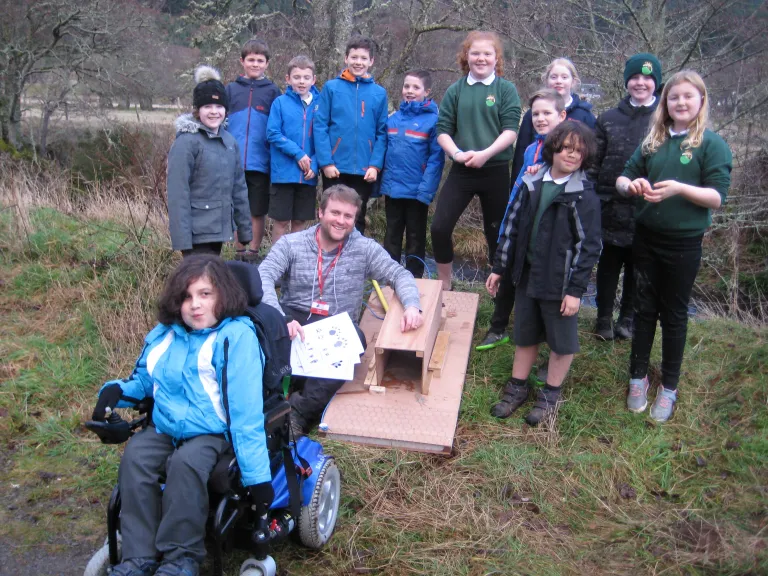Enabling everyone to take action for nature
Discover how NatureScot is involving a diverse range of volunteers in the Scottish Invasive Species Initiative.
By Alison Matheson, Policy and Advice Officer at NatureScot
The Scottish Invasive Species Initiative is a 5-year partnership project that works with local organisations and volunteers to control invasive non-native species along riversides in Northern Scotland. Invasive non-native species, like the American mink, giant hogweed, Himalayan balsam and Japanese knotweed, are responsible for the decline of many individual native species and impact on biodiversity more generally. The project also undertakes habitat restoration, promotes biosecurity, delivers education programmes and encourages the return and protection of our native wildlife.

What volunteer roles do you recruit for?
Volunteers and community groups are central to the Scottish Invasive Species Initiative programme – the scheme simply wouldn’t work without their input.
Volunteers help local partners and the project team by:
- Reporting invasive plant sighting or American mink sightings.
- Adopting a mink raft to monitor for American mink activity or overseeing a trap to help remove American mink from the wild.
- Controlling giant hogweed and Japanese knotweed by chemical spraying or injection or by physical removal.
- Controlling Himalayan balsam by hand pulling.
- Surveying rivers for unrecorded invasive plant locations and monitoring how successful removal works have been.
- Supporting education and awareness raising activities at shows and public events.
- Restoring habitats through native tree and wildflower planting.
Why does your organisation involve volunteers?
The Scottish Invasive Species Initiative is an ambitious project working at a large-scale across a third of Scotland to deliver effective and co-ordinated control of a suite of invasive non-native plants and the American mink. It is the biggest invasive species control project in Great Britain. Delivery of the range of invasive species control tasks at that scale is simply impossible without the support and commitment of many, many volunteers who are engaged with activities local to them by local delivery partners.
When the project comes to an end in 2023, after 5 years, the aspiration is that local community control of invasive non-native species will continue. Throughout the project, local volunteers have received informal and formal training opportunities – for example, to date approximately 150 volunteers have gained formal qualifications in chemical application. This developing network of trained, skilled, committed and supported volunteers is key to achieving local and sustainable control of invasive non-native species. Without these volunteers, supported and coordinated locally, the impact of the project and the capacity for future essential invasive non-native species control work would be much reduced.
How does your organisation remove barriers to volunteering?
From the outset, the project worked to remove barriers to volunteering and support everyone to volunteer. A full time Volunteer and Communications Officer is employed to ensure that communications with volunteers are effective, prioritised and regular.
To raise interest and awareness of invasive non-native species issues and enable everyone to get involved in the project, we:
- Require no prior experience for those wishing to volunteer – all materials, equipment and training are provided. Commitment, enthusiasm and a willingness to get involved are the only key requirements.
- Provide free training and local coordination to support volunteers in gaining formal qualifications and useful experience that can lead to employment.
- Make volunteering easy to ask about – the initial enquiry form can be completed quickly online or by contacting the project or partners directly to arrange a chat.
- Offer a range of flexible volunteering opportunities so people can get involved at times, frequencies and durations to suit their circumstances.
- Prepared a volunteering handbook (in English and Gaelic!) to clearly explain the project and volunteer tasks.
- Developed an extensive set of education resources for schools and learning.
- Delivered a primary school film project to empower and support young people to make new material about invasive species issues with a professional filmmaker.
What impact have volunteers made?
Volunteers have made a massive impact! We report on key metrics annually, and our data shows that between 2018 and 2021, the Scottish Invasive Species Initiative has achieved:
- >90,000 volunteer hours (equivalent to 12,875 days!) given by >1,000 volunteers.
- >7,000 school pupils have been involved in talks, activities or learning.
- >300 volunteers have received training, to mid-2022, with approximately 150 people gaining formal qualifications in outdoor first aid and/or hand held chemical application.
- >475 American mink have been despatched.
- 693km – 760km of riverbank controlled for giant hogweed annually.
Volunteer testimonial:
A number of volunteer profiles and blogs have been prepared by participants to share some of their experiences in working with the project. Here’s some of what they had to say:
“I would recommend to everyone who likes adventures, being in nature, new tasks and wants to get an insight to a varied job, to take the chance to volunteer with the SISI project. Thanks to the three project officers I had an unforgettable time, a lot of fun and on top of that I got to see beautiful, unpopulated places in Scotland.” – Viola
“When I go to the river to check on my rafts, I usually spend a few hours there just taking in the surroundings and taking that time to relax. I noticed other signs of wildlife presence, including footprints and padded down plants, holes in the embankments and feathers, so I bought myself a trail camera. Since I have set it up, I have had footage of roe deer, badgers, mice, pheasants and lots of various native birds.” – Cally
“I’ve had a great time on my placement with the Scottish Invasive Species Initiative – and learned a great deal about invasive species management and conservation in Scotland. I’d like to give a big thanks to the Dee, Don and Deveron teams for making my placement so enjoyable!” – Peter
Join Make Your Mark
Join 100+ volunteer-involving heritage organisations in Scotland who are working together to make heritage volunteering for all.

About the author
Make Your Mark
This is the make your mark author, can be used as a default.